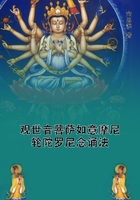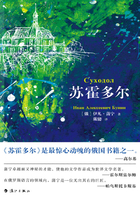In April 1640, the Parliament met; and the King had another chance of conciliating his people. The new House of Commons was, beyond all comparison, the least refractory House of Commons that had been known for many years. Indeed, we have never been able to understand how, after so long a period of misgovernment, the representatives of the nation should have shown so moderate and so loyal a disposition. Clarendon speaks with admiration of their dutiful temper. "The House, generally," says he, "was exceedingly disposed to please the King, and to do him service." "It could never be hoped," he observes elsewhere, "that more sober or dispassionate men would ever meet together in that place, or fewer who brought ill purposes with them."
In this Parliament Hampden took his seat as member for Buckinghamshire, and thenceforward, till the day of his death, gave himself up, with scarcely any intermission, to public affairs. He took lodgings in Gray's Inn Lane, near the house occupied by Pym, with whom he lived in habits of the closest intimacy. He was now decidedly the most popular man in England.
The Opposition looked to him as their leader, and the servants of the King treated him with marked respect.
Charles requested the Parliament to vote an immediate supply, and pledged his word that, if they would gratify him in this request, he would afterwards give them time to represent their grievances to him. The grievances under which the nation suffered were so serious, and the royal word had been so shamefully violated, that the Commons could hardly be expected to comply with this request.
During the first week of the session, the minutes of the proceedings against Hampden were laid on the table by Oliver St.
John, and a committee reported that the case was matter of grievance. The King sent a message to the Commons, offering, if they would vote him twelve subsidies, to give up the prerogative of ship-money. Many years before, he had received five subsidies in consideration of his assent to the Petition of Right. By assenting to that petition, he had given up the right of levying ship-money, if he ever possessed it. How he had observed the promises made to his third Parliament, all England knew; and it was not strange that the Commons should be somewhat unwilling to buy from him, over and over again, their own ancient and undoubted inheritance.
His message, however, was not unfavourably received. The Commons were ready to give a large supply; but they were not disposed to give it in exchange for a prerogative of which they altogether denied the existence. If they acceded to the proposal of the King, they recognised the legality of the writs of ship-money.
Hampden, who was a greater master of parliamentary tactics than any man of his time, saw that this was the prevailing feeling, and availed himself of it with great dexterity. He moved that the question should be put, "Whether the House would consent to the proposition made by the King, as contained in the message." Hyde interfered, and proposed that the question should be divided; that the sense of the House should be taken merely on the point whether there should be a supply or no supply; and that the manner and the amount should be left for subsequent consideration.
The majority of the House was for granting a supply, but against granting it in the manner proposed by the King. If the House had divided on Hampden's question, the court would have sustained a defeat; if on Hyde's, the court would have gained an apparent victory. Some members called for Hyde's motion, others, for Hampden's. In the midst of the uproar, the secretary of state, Sir Harry Vane, rose and stated that the supply would not be accepted unless it were voted according to the tenor of the message. Vane was supported by Herbert, the Solicitor-General.
Hyde's motion was therefore no further pressed, and the debate on the general question was adjourned till the next day.
On the next day the King came down to the House of Lords, and dissolved the Parliament with an angry speech. His conduct on this occasion has never been defended by any of his apologists.
Clarendon condemns it severely. "No man," says he, "could imagine what offence the Commons had given." The offence which they had given is plain. They had, indeed, behaved most temperately and most respectfully. But they had shown a disposition to redress wrongs and to vindicate the laws; and this was enough to make them hateful to a king whom no law could bind, and whose whole government was one system of wrong.
The nation received the intelligence of the dissolution with sorrow and indignation, The only persons to whom this event gave pleasure were those few discerning men who thought that the maladies of the state were beyond the reach of gentle remedies.
Oliver St. John's joy was too great for concealment. It lighted up his dark and melancholy features, and made him, for the first time, indiscreetly communicative. He told Hyde that things must be worse before they could be better, and that the dissolved Parliament would never have done all that was necessary. St.
John, we think, was in the right. No good could then have been done by any Parliament which did not fully understand that no confidence could safely be placed in the King, and that, while he enjoyed more than the shadow of power, the nation would never enjoy more than the shadow of liberty.














